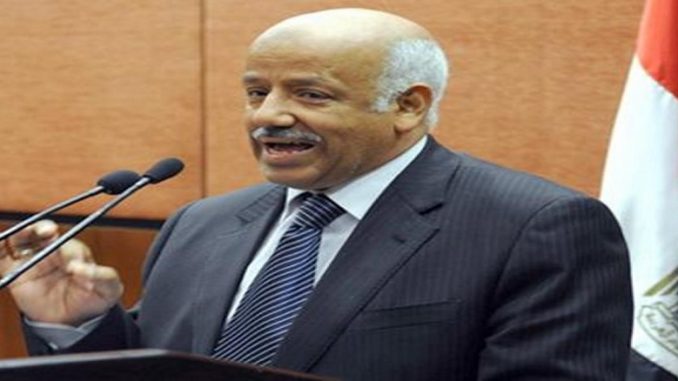
The Cairo Criminal Court renewed the detention of former justice minister Ahmed Soliman for 45 days, pending investigations into charges of joining an unlawful group and disseminating false news on Egypt’s political and economic situation to disturb the peace.
Soliman held his former post under the rule of the Muslim Brotherhood, which lasted for one year until the overthrow of Egypt’s First democratically elected President, Mohamed Morsi in July 2013.
The police arrested Soliman on December 2018.
Prior to the arrest, lawyer Samir Sabry had filed a report with the State Security Emergency Prosecution accusing Soliman of holding interviews with hostile satellite channels financed by Qatar and the Muslim Brotherhood.
Sabry said that Soliman attacked the Egyptian state in these interviews, and questioned the integrity and impartiality of the Egyptian judiciary. He added that Soliman agitated against the Egyptian state and its president and called on foreign countries to intervene in Egyptian affairs.
Since al-Sisi reached power through a military coup, the Egyptian judiciary has served to legitimate and facilitate the authoritarian rule. The Egyptian judiciary has served as a channel through which Sisi presses his oppression. While the judiciary exercised limited checks over the executive bias, the executive interference has undermined all other state institutions.
Moreover, when al-Sisi assumed power on June 8, 2014, the Egyptian judiciary became complacent to cumulative degrees of injustice and oppression. The judges that remained in service either voluntarily abided to authoritarian dictates or didn’t dare to raise their voice for judicial impartiality.
Take for example the case of Judges for Egypt – a group of judges who challenged the authority of Sisi in overthrowing the elected president. In March 2016, the Supreme Disciplinary Board forcefully removed 47 judges who were part of a group being charged of being “pro-Islamist.” However, adherence to any political idea is the right of a citizen devoid of the professional position one holds.
The explicit muzzling of this right and the conspicuous silence of the judiciary shows the extent of compromise Egypt’s judicial system has fallen for. Egypt’s judicial reform has neither been indigenous, nor comprehensive, nor locally supported. Any successful reform aims to restructure the social and political variables exogenous to the judiciary that promotes judicial independence and the superiority of the “rule of law.”
This “decisional” independence requires, essentially, that judicial ranks are not staked in advance through the appointment or promotion of people that approve a particular set of ideas.
.



